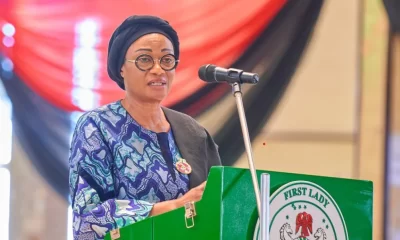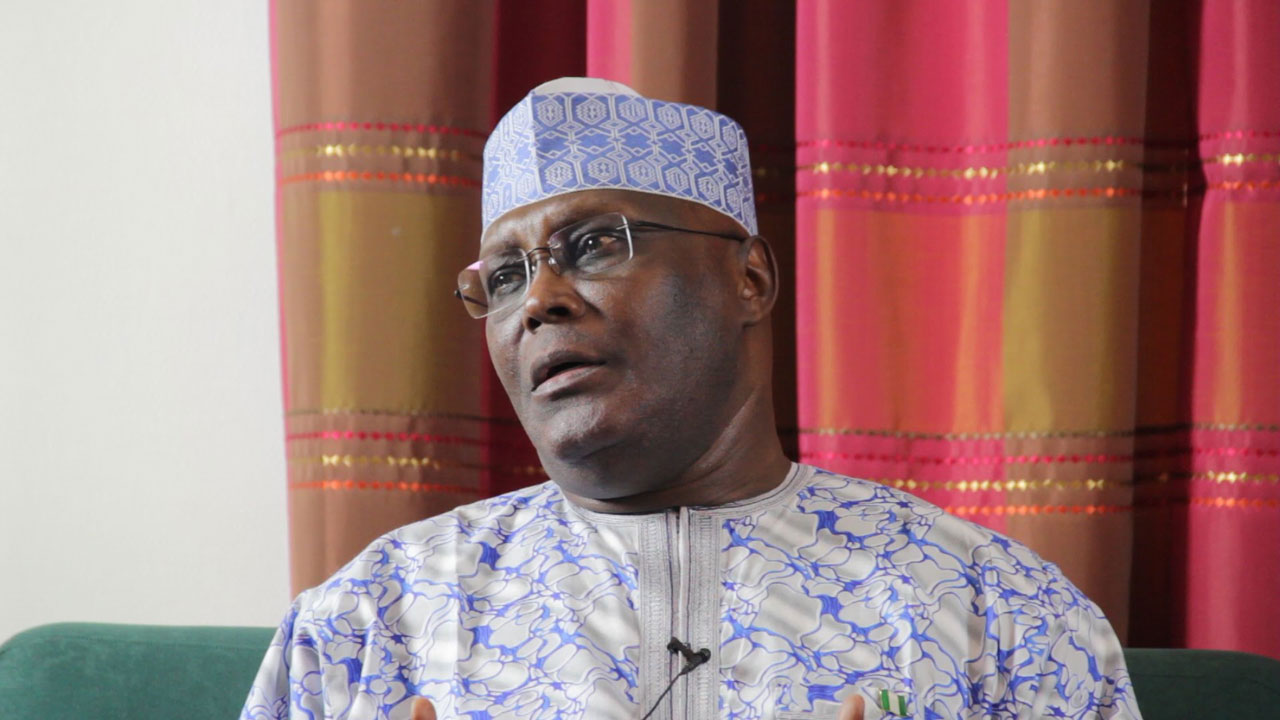By SUNDAY ODIBASHI
The presidential candidate of the Peoples Democratic Party (PDP), former Vice President Atiku Abubakar, may have suffered ‘losses in two ways in the February 23, 2019, presidential election, one of which he is challenging at the Presidential Election Petition Tribunal. While battling with the petition on alleged malpractice and irregularities in the election at the Tribunal, certain PDP leaders, particularly, from the north were said to have played roles which were said to counter the victory of Atiku and the PDP in the presidential election, beside other non-partisan forces.
A source from the Atiku campaign was of the view that prominent PDP leaders from Kano, Jigawa, Sokoto, Bauchi states, among others, purportedly withhold their support for Atiku in the presidential election and allowed leaders of the All Progressives Congress (APC) to have their ways in determining the results of the election in their respective states.
The pacific silence after the November 2018 PDP National Convention in Port Harcourt, Rivers State, where Atiku won the party’s ticket, seemingly beclouded the latent discontentment of most PDP leaders. The party leaders were gathered to have refrained from disorganizing the party and causing confusion in the build up to the 2019 general elections. However, they had their reservations, which constrained them from total support for the PDP presidential candidate.
The source from the Atiku Campaign noted that in Kano State, the former governor, Senator Rabi’u Musa Kwankwaso, did not purportedly work for Atiku in the presidential election. He was of the view that Kwankwaso was not comfortable with Atiku being the president because of the former governor’s presidential ambition in 2023. It was alleged that Kwankwaso feared that Atiku may not give him the PDP presidential ticket in 2023 if he had won. Thus, he was purported to have withdrawn his support in the presidential election but massively mobilized the army of supporters in the Kwankwasiyya movement for the governorship election on March 9, 2019. The results of the two elections were said to have shown clear indicators where the vested interest of the former Kano governor and a strong political leader in the state was concentrated.
In Kaduna State, Senator Ahmed Makarfi was said to be dissatisfied with the outcome of the PDP national convention where party delegates nominated Atiku as the party’s presidential candidate, having defected from the APC, while the former Kaduna State Governor had fought assiduously to rescue and rebuild PDP after the 2015 general elections. His perceived withdrawal of support, in addition to the passive political activities of former Vice President Nemadi Sambo were said to have opened the space for alleged electoral irregularities in Kaduna State.
The same phenomenon was said to have been replicated in Sokoto State coordinated by Governor Aminu Waziri Tambuwal; and Bauchi State where the newly elected governor, Bala Mohammed, has strongly established his political authority.
Former Governor Sule Lamido of Jigawa State was also accused of having abandoned Atiku in the presidential election in the state. Lamido was said to share similar discontentment perceived of Makarfi in Kaduna State.
ALSO READ: Post-2019: APC celebrates Akpabio’s defeat in Akwa Ibom
In Borno State, Governor Kashim Ibrahim Shettima had delivered the state to the APC to frustrate Atilku in his north east political base. The governor was said to have preferred to push the power outside the northeast despite the fact that the zone is presenting a presidential candidate for the time in history. Governor Shettima was said to be of the view that even when the north east is demanding for a presidential candidate, the person must be a Kanuri, noting that Atiku is a Fulani. Our source said that Atiku did not appeal to the governor and some other leaders in the zone as representing the geo-political clime. The result from Borno State was said to be most ridiculous when juxtaposed with the Boko Haram war situation in the northeast.
Furthermore, prominent northern leaders were also identified not to take side with Atiku in protest that the PDP candidate was romancing and moving closely with southern leaders during the electioneering campaigns. They were said to have complained that Atiku was far away from them, and felt insecure if Atiku becomes president.
However, it was noted that Atiku needed the majority votes from the south to balance off the additional votes he anticipated from the north. The PDP presidential candidate was said to be working on the premise that APC is a northern dominated party and needed to balance the majority support base.
The source from the Atiku Campaign, however, noted that despite the unwillingness of most PDP leaders to cooperate with Atiku in the north, the PDP candidate still won the presidential election, which he alleged was manipulated to the contrary. He added that the withdrawal of support by the party leaders made it facile for the ruling party to play their games and purportedly thwarted the will of the Nigerian people.

 Entertainment6 days ago
Entertainment6 days ago
 Entertainment3 days ago
Entertainment3 days ago
 Comments and Issues6 days ago
Comments and Issues6 days ago
 Business7 days ago
Business7 days ago
 Comments and Issues6 days ago
Comments and Issues6 days ago
 Health1 week ago
Health1 week ago
 Editorial Opinion1 week ago
Editorial Opinion1 week ago
 Comments and Issues6 days ago
Comments and Issues6 days ago

